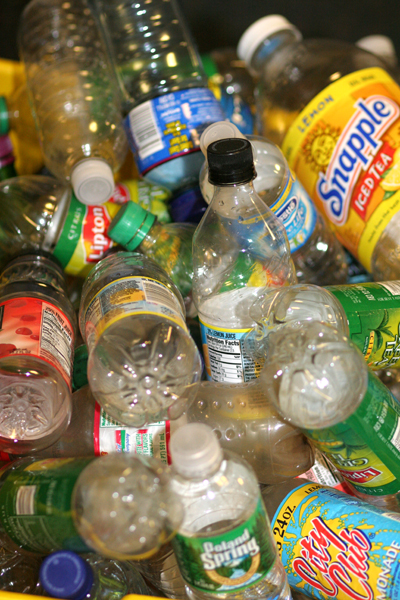
On the 25th anniversary of New York State’s original Bottle Bill, the New York Public Interest Research Group has recently begun a campaign in support of an improved version, known as the Bigger Better Bottle Bill.
The original Bottle Bill, passed in 1982, requires a 5-cent deposit on carbonated beverage containers sold in New York. The Bottle Bill is New York’s largest recycling program and has contributed to the recycling of 6 million tons of bottles in the past 25 years.
The Bigger Better Bottle Bill would expand the types of bottles eligible for deposit, allowing for non-carbonated beverage containers, like water and sports drinks. Although these types of containers were not prevalent when the original bill was introduced in 1982, 2 million non-redeemable bottles are now disposed of as litter each year. NYPIRG believes that making these types of bottles redeemable for a deposit would encourage people to recycle more and could contribute to a significant decrease in pollution.
Yoni Levin, director of Binghamton University’s chapter of NYPIRG, believes it is logical to expand the Bottle Bill. ‘For example, Pepsi and Aquafina are sold in the same bottle, except Pepsi is refundable and Aquafina is not. We are trying to change that,’ Levin said.
A second facet of the proposed bill aims to collect more money for state environmental agencies. Under the original bill, beverage companies are allowed to keep the extra money from unclaimed bottles, which can accumulate to as much as $140 million each year. The Bigger Better Bottle Bill would require companies to return that deposited money to the State Environmental Protection Fund.
New York Governor Eliot Spitzer has already included the Bigger Better Bottle Bill in his budget for 2007, although it cannot become an official law unless it is passed by the State Legislature.
Those against the bill, however, argue that the increased bottling costs would be passed on to customers and that container manufacturing jobs would be lost if bottles were reused more often.
‘I feel that it doesn’t benefit students specifically or Binghamton residents specifically,’ said Michael Saltzman, who created the ‘NO TO NYPIRG!’ Facebook.com group.
NYPIRG’s budget, he said, was not issued with BU’s best interest in mind. On the site, he called it a ‘professional lobbying group’ and advocated dedicating the student activity fee solely to other student groups and events. NYPIRG advocates on state-wide student issues and also provides on-campus programming and student empowerment training.
BU members have recently participated in Lobby Days, during which students are sent to Albany to speak with state legislators about the importance of the new bill.
‘We are also planning a trip to visit our district offices,’ said Allison Pfeifer, a NYPIRG environmental intern.
NYPIRG has also organized collections of empty recyclable bottles in the Susquehanna Community as part of their bottle drive, Pfeifer added. The club donates all profits from the deposit of these bottles to a local homeless shelter.
Environmentally-minded students wishing to support the Bigger Better Bottle Bill can find more information at NYPIRG meetings every Tuesday night at 7 p.m in the New University Union, room 318. For those students wishing to contribute without making a long-term commitment, Levin encourages students to bring their empty beverage containers to the NYPIRG office for recycling.


